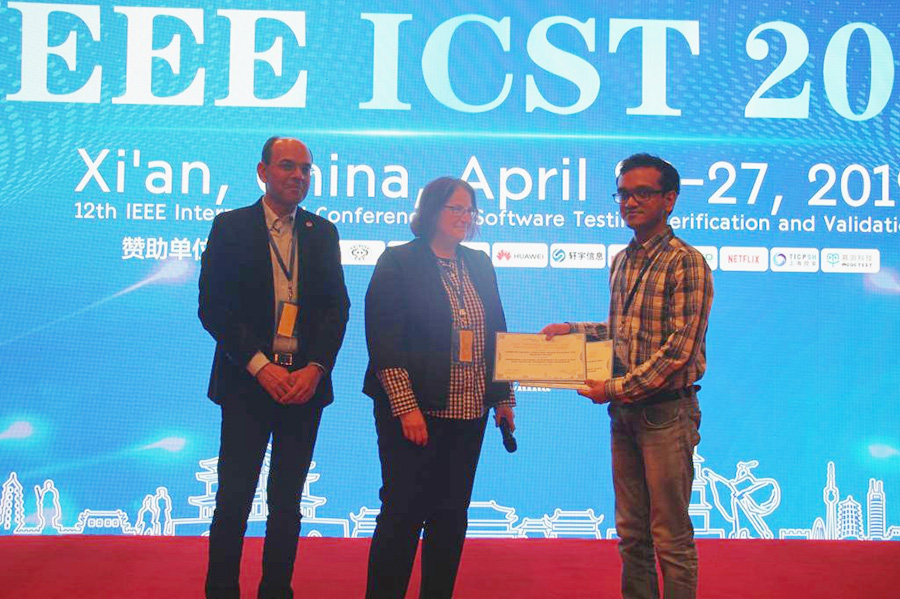ECE student wins Distinguished Paper Award at ICST 2019

ECE grad student Charitha Saumya received a Distinguished Paper Award at the IEEE International Conference on Software Testing, Verification and Validation (ICST). This conference is an annual forum for researchers from academia and industry to present their novel ideas, findings and developments in the areas of software testing, verification and validation. At most, 10% of papers at ICST received the IEEE Technical Council on Software Engineering (TCSE) Distinguished Paper Award.
Saumya’s paper, entitled “XSTRESSOR: Automatic Generation of Large-Scale Test Inputs by Inferring Path Conditions,” presents Xstressor, which helps with worse-case test inputs for software testing. Programs behave differently when presented with large scale inputs than they do at smaller scales. Large scale “stress” inputs can lead to performance bottlenecks or even denial-of-service attacks. However, it is difficult to find large-scale inputs that programmers can use to stress-test their programs under load. Symbolic execution is a well-known technique for generating high quality tests, but it does not scale up: it has exponential complexity with input size. Hence, symbolic execution cannot generate these stress tests.

XSTRESSOR efficiently generates large-scale, worst-case, “stress test" inputs for programs with loops. XSTRESSOR learns the patterns of worst-case program behavior at small scales and builds a predictive model to directly generate worst-case stress tests at large scale. By using these models, XSTRESSOR completely avoids symbolic execution at large scales and hence can be used to generate high-quality stress tests much faster than existing techniques.
In addition to Saumya, ECE professors Saurabh Bagchi and Milind Kulkarni and Research Scientist Jinkyu Koo collaborated on this research. The award was presented to Saumya at ICST 2019, which took place from April 22-27, 2019 in Xi’an, China.
